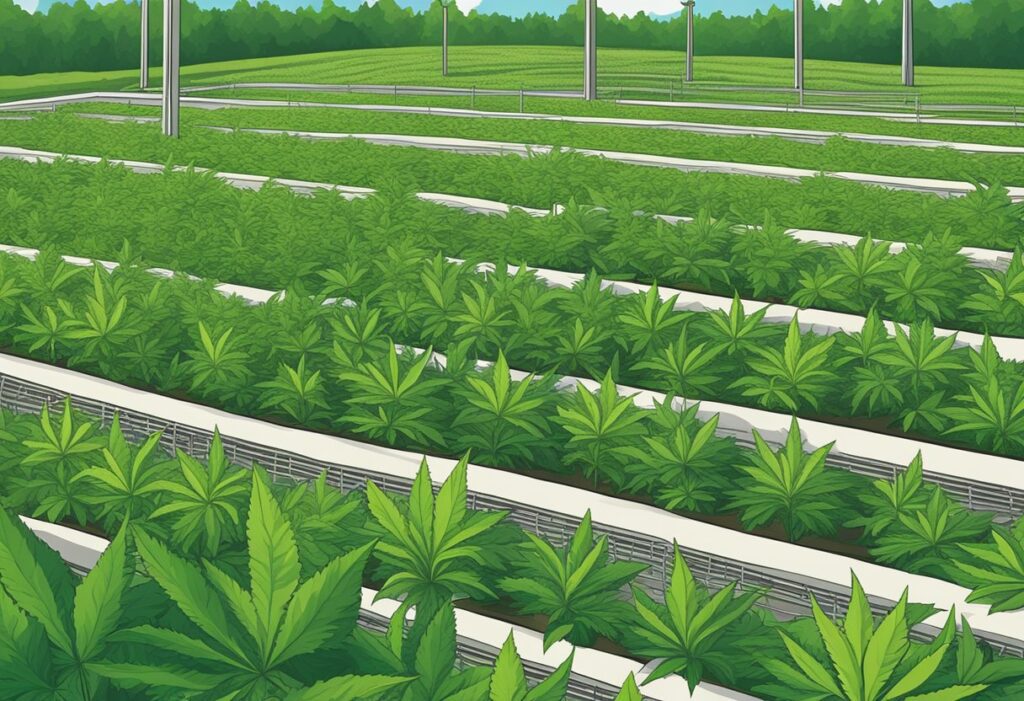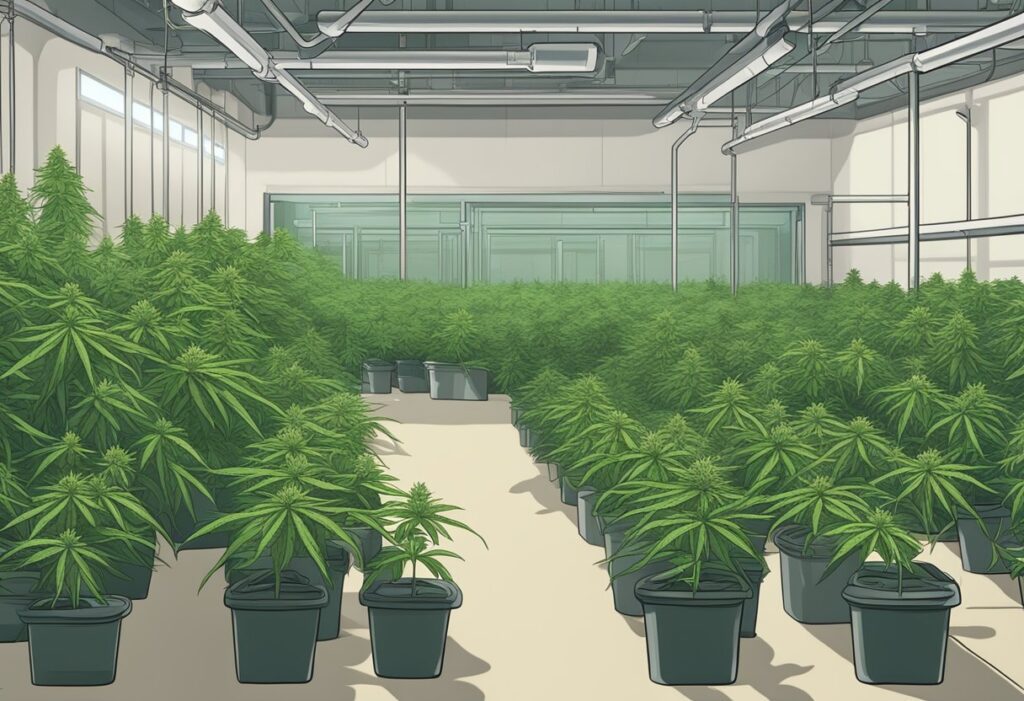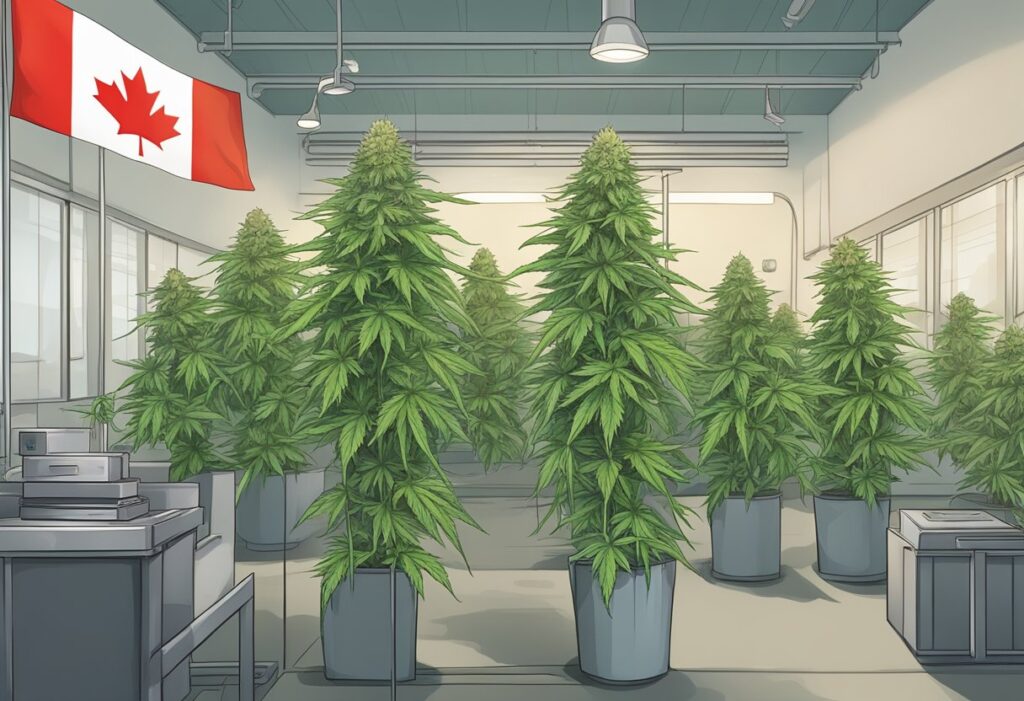
When you embark on cultivating White Widow in Canada, it’s crucial to navigate the legal tapestry woven since the landmark year of 2018, when cannabis legalization reshaped the industry. Here’s how you’ll need to understand the Cannabis Act and the roles of various authorities in ensuring compliance.
In 2018, Canada took a progressive leap by legalizing cannabis nationwide. You should be aware that the Cannabis Act sets the national stage for the control and regulation of cannabis, including its cultivation. The act aims to keep cannabis away from youth, eliminate illicit profits, and establish a public safety net. Your cultivation activities will need to align with this legal framework which delineates acceptable practices for handling, selling, and producing legal cannabis.
Legal Framework Highlights:
Health Canada is your go-to federal institution when it comes to the regulatory oversight of cannabis cultivation. They ensure that the industry adheres to the rules, focusing on safety and quality. For your White Widow crop, you’ll need to meet the compliance requirements put forth by Health Canada and secure the appropriate licenses.
Quick Checklist for Compliance:
While the federal government lays out the overarching laws, each of Canada’s provinces and territories holds the reins for certain regulations. This means that where you plan to grow White Widow can significantly affect the rules you’re subject to. These can range from zoning laws for cannabis businesses to retail framework adjustments. Stay informed about the specific provincial and territorial policies to ensure regional compliance.
Key Points for Provincial/Territorial Compliance:
By acquainting yourself with Canada’s comprehensive and multi-layered approach to cannabis legislation and regulation, you put yourself in a better position to successfully cultivate White Widow within the bounds of the law.

When considering the cultivation of White Widow or any cannabis strain for distribution in Canada, understanding and obtaining the proper licensing is crucial. Compliance with Health Canada’s established rules protects you and ensures your operation aligns with national standards.
Before you can legally grow cannabis plants such as White Widow for commercial purposes, you must obtain a cultivation license from Health Canada. The type of license you need depends on the scale and nature of your operation:
To begin, register an account in the Cannabis Tracking and Licensing System (CLTS) and submit your application. Expect a detailed review process, including a 2-stage review for certain applicants.
Once licensed, your cultivation must meet strict compliance requirements for quality and potency, encompassing:
Industry standards for production quality are high to maintain the integrity of legal cannabis products in the market.
For personal cultivation of cannabis plants at home, Canada allows you to grow up to four cannabis plants per residence for personal use, excluding Quebec and Manitoba where home cultivation is prohibited. However, if you plan to sell the cannabis you cultivate, even as an artisanal grower, you must be a licensed seller and only source plants from legal sources.
Keep in mind:
Understanding these nuances helps you navigate the legal landscape successfully, whether cultivating for personal enjoyment or commercial production.

As you explore the cultivation of White Widow cannabis in Canada, it’s crucial to consider not just the legal aspects, but also how public health and safety are affected. The focus on preventing impaired driving and the broader societal impacts are pivotal concerns.
When it comes to your health, cannabis legalization in Canada was designed with robust frameworks to protect it. Research indicates varying health risks, particularly for youth, such as an association with certain mental health issues and dependency. Public education efforts aim to inform citizens about safe use and potential risks, to help you make informed decisions.
With legalization, law enforcement’s role in maintaining safety on roads has had to adapt. Preventing drug-impaired driving is crucial for your safety, and new laws and policies reflect this priority. Road safety campaigns and random testing procedures have been instituted.
The societal impact of cannabis use is wide-reaching. While legalization has opened up new economic avenues, it also places a responsibility on you for social safety and responsible use.
To cultivate White Widow in Canada, you must obtain a federal license from Health Canada. This involves complying with the Cannabis Act’s regulatory requirements, ensuring security measures, record-keeping, and quality control standards.
Cannabis cultivation on indigenous reserves in Canada requires adherence to the same federal regulations as off-reserve operations. However, there may be additional bylaws from the indigenous community that govern cultivation and sale.
Vape cartridges with cannabis, such as White Widow, are subject to regulations that limit THC content, ban certain additives, and require child-resistant and plain packaging to prevent youth appeal and consumption.
Yes, individuals can operate cannabis franchises like Canna Cabana in Canada. Costs vary by province and include licensing fees, inventory purchase, and real estate investments; a thorough financial plan is essential before undertaking such a venture.
Opening a dispensary in tourist areas, including Banff, is possible, but you must comply with provincial regulations, zoning laws, and municipal bylaws specific to retail cannabis operations in tourist destinations.
We ship and deliver world wide via USPS and various couriers.
We offer a wide range of secure and anonymous online payment options.
We care about you, our customer. Please contact us with any questions or concerns.
Find out more about the benefits of being a loyal and regular customer.
WE ARE EVERY GROWERS ONE STOP SHOP TO ACQUIRE PREMIUM CANNABIS SEEDS FOR SALE IN THE USA, CANADA AND AUSTRALIA

Farmers Lab Seeds 2024, | All Right Reserved
Seeds are sold as novelty items, souvenirs, and collectibles. They contain 0% THC. We encourage our customers to check the legislation in their Country, State, Province, and Municipality prior to purchasing items from our store. We do not provide growing information.
All seeds are sold as hemp, and lab tested under 0.3% THC. This product is not for use by or sale to persons under the age of 21. This product should be used only as directed on the label. It should not be used if you are pregnant or nursing. Consult with a physician before use if you have a serious medical condition or use prescription medications. A Doctor’s advice should be sought before using this and any supplemental dietary product. All trademarks and copyrights are property of their respective owners and are not affiliated with nor do they endorse this product.
These statements have not been evaluated by the FDA. This product is not intended to diagnose, treat, cure or prevent any disease. Individual weight loss results will vary. By using this site, you agree to follow the Privacy Policy and all Terms & Conditions printed on this site. Void Where Prohibited by Law.